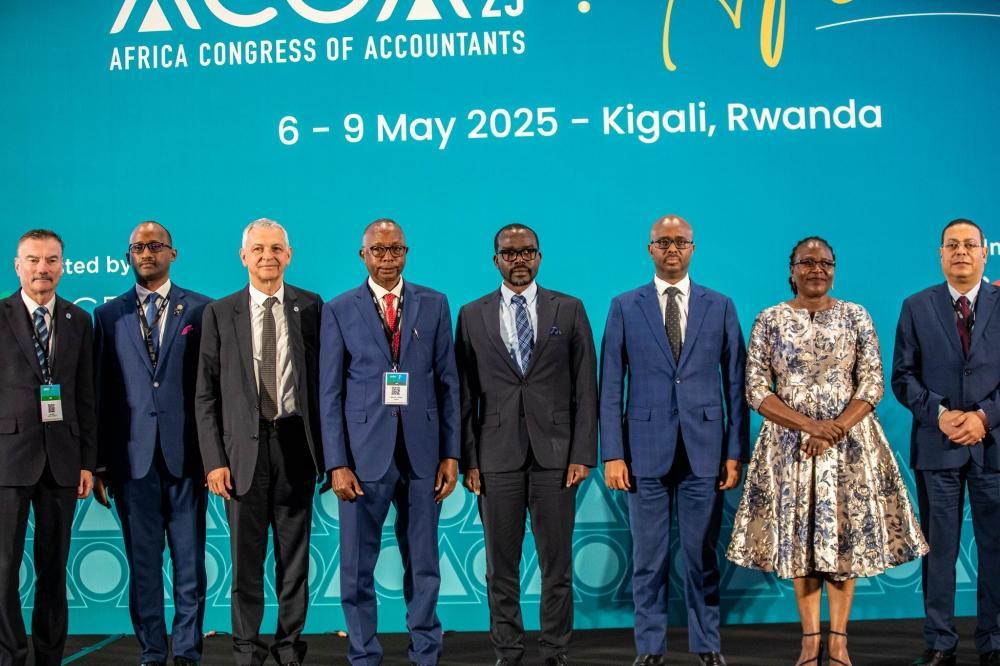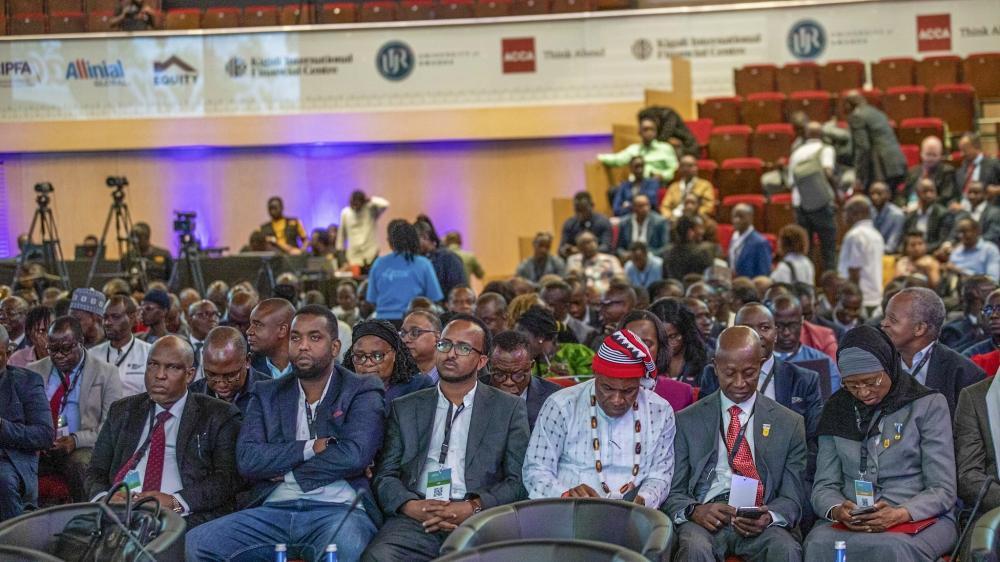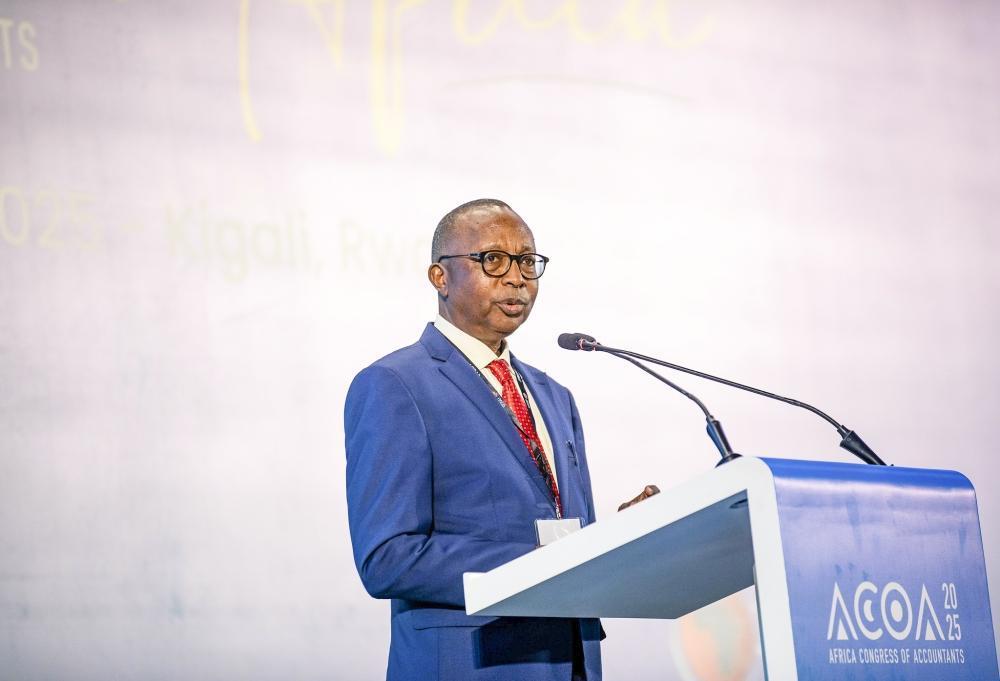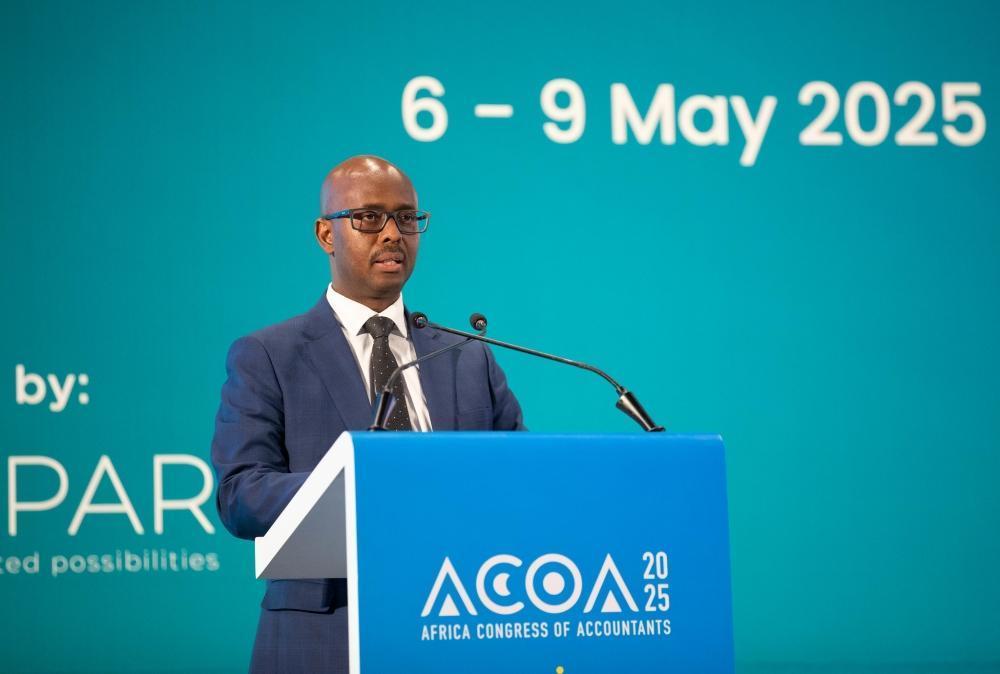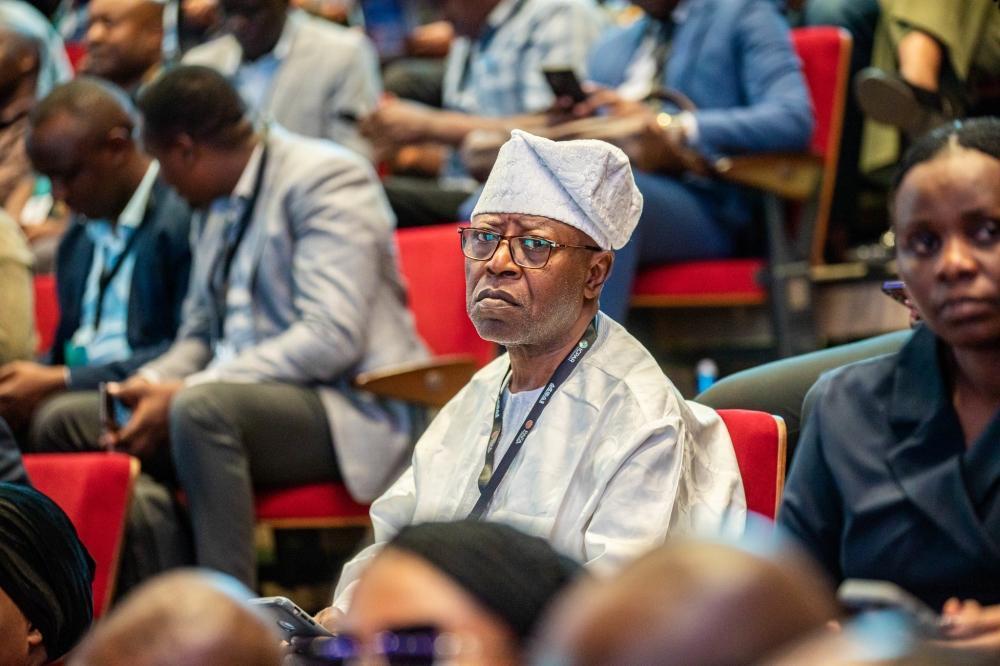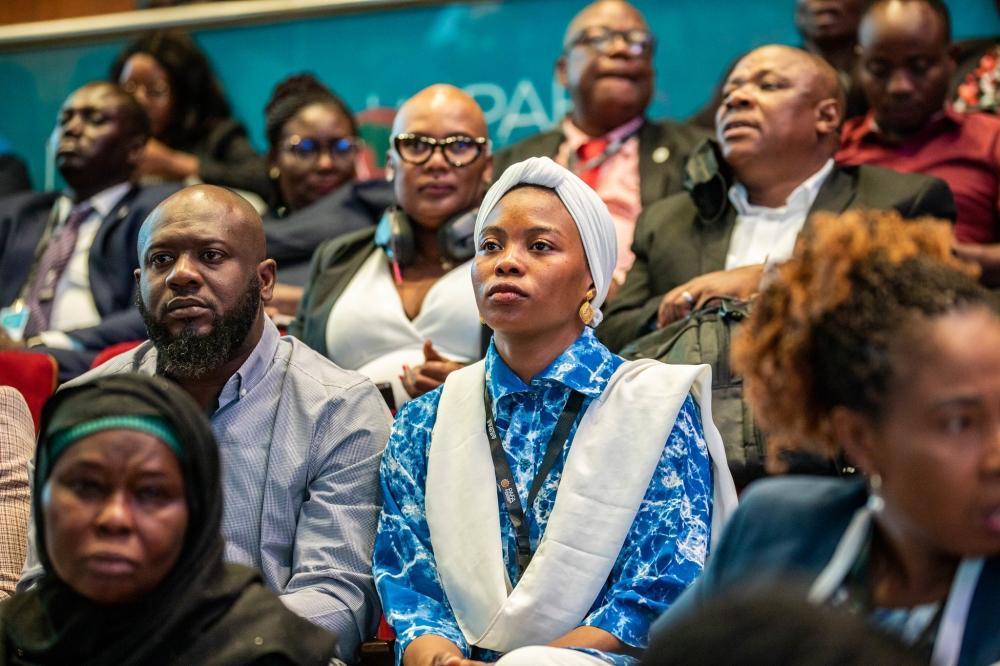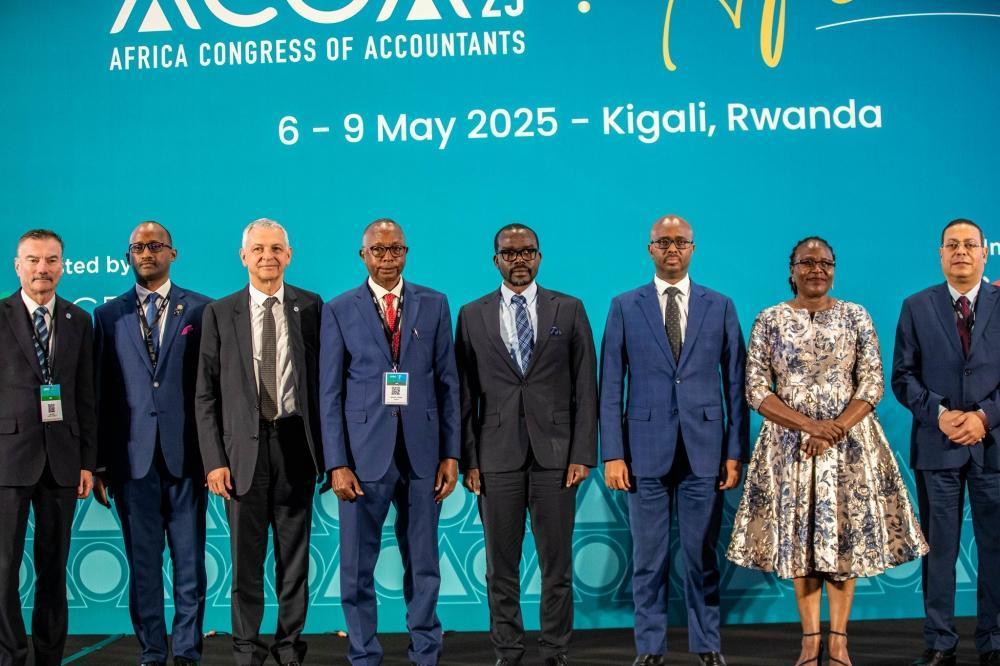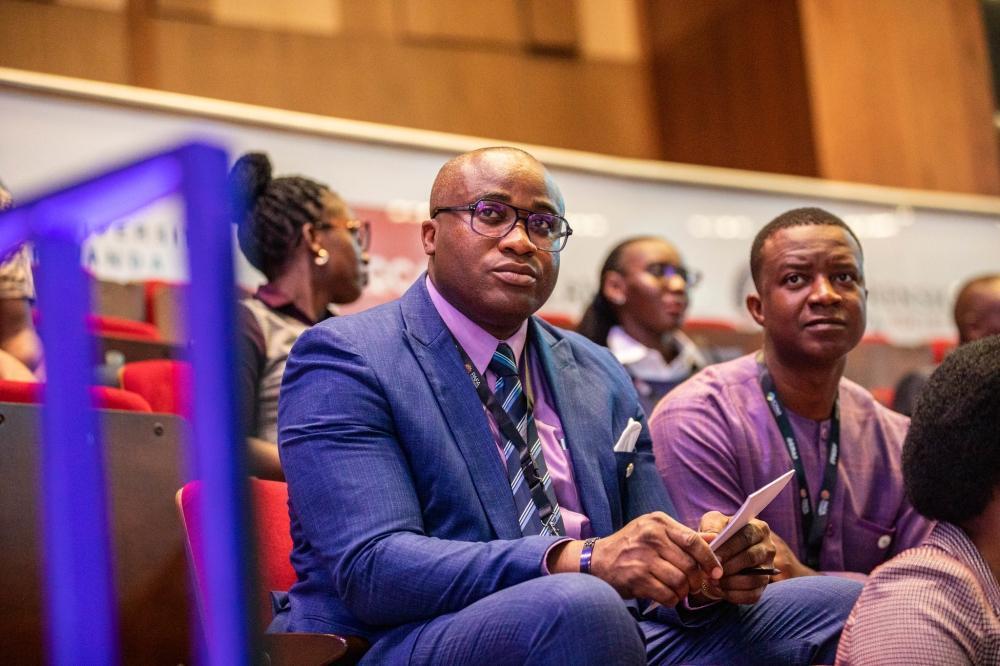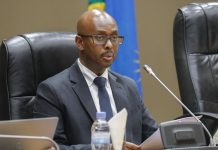Africa-Press – Rwanda. Calls for restoring public trust and pushing the accountancy profession’s role in value creation took centre stage on Tuesday, May 7, on the first day of the Africa Congress of Accountants (ACOA), underway in Kigali.
More than 2,000 professional accountants and finance experts from across Africa have gathered for the bi-annual event hosted by the Institute of Certified Public Accountants of Rwanda (ICPAR) in partnership with the Pan African Federation of Accountants (PAFA).
Under the theme, Creating Value for Africa, organisers of the congress believe it offers a platform to reframe the role of accountants from traditional compliance roles to agents of economic transformation and public accountability on the continent.
Obadiah R. Biraro, President of ICPAR, maintained that the theme reflects the continent’s shared commitment to building a strong, inclusive, and forward-looking profession that contributes meaningfully to Africa’s sustainable development.
“We look forward to hosting you in Kigali as we engage, collaborate, and inspire one another to drive Africa’s transformation through professional excellence,” he said.
A former Auditor General of Rwanda, Biraro pointed out the significance of accountancy in advancing good governance, transparency, and sustainable economic progress across Africa.
The conference was held under the theme, Creating Value for Africa
He also pointed out Rwanda’s journey in transparency and accountability, which has been significant in the country’s regional, continental, and global performance.
“In a world where financial systems are increasingly interconnected, taking ownership of developing our profession is not something we can ask others to do for us,” Biraro reiterated.
“Hosting ACOA is an indication that Rwanda’s perspective matters, that our innovations merit attention, and that our solutions have relevance in the global accounting ecosystem,” he added.
According to the United Nations Economic Commission for Africa (UNECA), the continent loses an estimated $88.6 billion annually to illicit financial flows, much of which is enabled by poor accounting practices, lack of transparency, and regulatory loopholes.
This also means weakened investor confidence, and gaps in citizen trust in financial firms, leading to limited public service delivery.
Despite these concerns, officials also discussed how accountants can play a central role in driving development.
Jean Bouquot, President of the International Federation of Accountants (IFAC), reflected on the growing importance of non-financial reporting in sustainability and decision-making.
“Investors and lenders require accurate sustainability information to make informed decisions that align with long-term goals,” he said, highlighting the need for a globally consistent framework for high-quality sustainability disclosures.
“I want to remind all of us in this profession that we owe the public our credibility. We must remain solid rock.”
Bouquot maintained that Small and Medium Enterprises (SMEs) are the backbone of the African economy, adding that they employ four out of five people.
“We need to be ready to work with or within Small and Medium Enterprises (SMEs) to power their growth. SMEs are also struggling to attract talent; we need to look into how we can step in to fill this void. We need to encourage Small and Medium-sized Practices (SMPs) to support SMEs. Beyond talent, they face challenges of adapting to emerging technologies and sustaining their businesses.”
Delegates are exploring ways to create sustainable value beyond profit reporting, including advising on inclusive financial systems, improving data-driven decision-making, and supporting environmental accountability.
“Since its inception in 2011, ACOA has grown into a powerful space for advancing thought leadership, building regional collaboration, and showcasing the contribution of the profession to Africa’s development. I call upon you to engage, contribute, learn, and lead. Let us also unite, transform, and thrive,” added Keto Kayemba, the outgoing President of the Pan African Federation of Accountants (PAFA).
Kayemba, Uganda’s former Auditor General, argued that Africa doesn’t need to replicate the world, but instead Africa can influence the world.
“Let us work together to sharpen our youthful population, address the digital divide, and strive for integrity,” she said.
Sessions at the congress are focusing on practical strategies such as using digital tools for real-time public expenditure tracking and designing integrated financial reports that include social and environmental metrics.
However, the profession’s transformation faces critical capacity challenges.
In many African countries, the number of certified accountants remains low. A World Bank report cited that in some states, fewer than 500 professionally certified accountants serve entire populations.
To address this, several national accountancy bodies, including ICPAR, have announced new training and mentorship programmes, with a focus on reaching youth and women in underserved areas.
Obadiah R. Biraro, President of ICPAR addresses delegates at the conference in Kigali.
Time is now
Yusuf Murangwa, the Minister of Finance and Economic Planning, reiterated the unique role accounting professionals play in helping Africa to generate, assess, and safeguard value by promoting transparency, accountability, and sustainability across the public and private sectors.
“As Africa rises, we must ensure that our growth is anchored on strong systems and ethical leadership. The accountancy profession, built on integrity and rigor, is central to this journey,” Murangwa told a fully packed hall at KCC.
He urged the delegates to use the congress as a moment of reflection and collaboration to challenge themselves on how to account for value and create and sustain value.
“Across our continent, we are navigating complex economic challenges, climate risks, global disruptions, and shifting financial landscapes. Yet, we are also witnessing incredible momentum in innovation, demographic opportunities, and regional integration,” said Murangwa.
“Accountants, auditors, and financial professionals have a unique position to assist Africa in generating, assessing, and safeguarding value.”
Murangwa also pointed out Rwanda’s commitment to transparency and sustainable development, highlighting initiatives like the Kigali International Financial Centre, the Green Capsule Group, and green investment reforms through the Development Bank of Rwanda as examples of aligning financial practices with national and continental goals.
Minister of Finance and Economic Planning Yusuf Murangwa delivers his remarks at the Africa Congress of Accountants (ACOA) on Tuesday, May 7. All photos by Dan Gatsinzi
“Let us challenge ourselves not only to think of how we account for value but also how we create and sustain value.”
The four-day summit will focus on reshaping the future of accountancy.
Participants will explore strategies to drive innovation, strengthen collaboration, and advance sustainable economic and environmental value across Africa.
Officials pose for a group photo at the Africa Congress of Accountants (ACOA) on Tuesday, May 7
For More News And Analysis About Rwanda Follow Africa-Press

